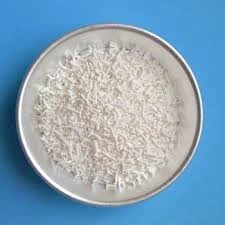
monosodium glutamate uses in food
The Uses of Monosodium Glutamate in Food
Monosodium glutamate, commonly known as MSG, is a flavor enhancer that has been widely used in the culinary world for decades. It has a unique ability to enhance the umami taste, which is considered one of the five basic tastes alongside sweet, sour, bitter, and salty. This specific taste is often described as savory and is naturally found in various foods, including cheese, mushrooms, and tomatoes. MSG is synthesized from glutamic acid, an amino acid that occurs naturally in many foods, making it a prevalent ingredient in various culinary traditions around the globe.
The Uses of Monosodium Glutamate in Food
In Asian cuisine, MSG has been used for many years, especially in Chinese cooking. It is often added to stir-fries, marinades, and sauces to amplify the natural flavors of the ingredients. Dishes like fried rice, noodle soups, and dumplings can benefit from MSG, delivering a depth of flavor that resonates well with diners. As global culinary practices merge, MSG has found its way into many Western dishes as well, transcending cultural boundaries and enhancing flavors in a variety of contexts.
monosodium glutamate uses in food

Furthermore, MSG is prized for its role in reducing the sodium content in foods. Because MSG is approximately one-third the sodium of table salt, it allows chefs and food manufacturers to provide flavorful dishes with less sodium, which is a significant consideration in public health discussions concerning salt intake. Reducing sodium while maintaining taste is essential for offering heart-healthy options without compromising flavor, and MSG serves as a valuable tool in this effort.
Despite its popularity, MSG has been the subject of controversy and health debates. Some consumers report adverse reactions to MSG, such as headaches or allergic-like symptoms, although numerous scientific studies have generally deemed MSG safe for consumption in moderate amounts. The FDA classifies it as generally recognized as safe (GRAS), indicating that it is acceptable for use in food products. Nevertheless, some people remain sensitive to MSG, prompting manufacturers to label their products clearly to inform consumers.
In conclusion, monosodium glutamate is a widely used ingredient in the culinary industry known for its ability to enhance flavors, particularly umami. Its versatility makes it a popular choice among chefs and food manufacturers aiming to create delicious and satisfying dishes. While the health debates surrounding MSG continue, its functions in reducing sodium content and amplifying taste provide significant benefits in food preparation. Whether in savory snacks or traditional dishes, MSG plays an essential role in modern cuisine, shaping our eating experiences and enhancing the flavors that we enjoy. As culinary practices evolve, MSG remains an important consideration for chefs, food scientists, and health-conscious consumers alike.
-
Sodium Dichloroisocyanurate Safety Handling ProtocolsNewsJul.29,2025
-
Mining Chemicals for Copper Extraction Processes GuideNewsJul.29,2025
-
Fertilizer for Sale Shipping and Storage TipsNewsJul.29,2025
-
Dimethyl Disulfide as Sulfurizing AgentNewsJul.29,2025
-
Benzotriazole Safety Data Handling and Storage GuidelinesNewsJul.29,2025
-
Ammonium Bicarbonate Safety Handling Storage GuidelinesNewsJul.29,2025
-
The Transformative Role Of Trichloroisocyanuric Acid in Water TreatmentNewsJul.23,2025
Hebei Tenger Chemical Technology Co., Ltd. focuses on the chemical industry and is committed to the export service of chemical raw materials.
-

view more DiethanolisopropanolamineIn the ever-growing field of chemical solutions, diethanolisopropanolamine (DEIPA) stands out as a versatile and important compound. Due to its unique chemical structure and properties, DEIPA is of interest to various industries including construction, personal care, and agriculture. -

view more TriisopropanolamineTriisopropanolamine (TIPA) alkanol amine substance, is a kind of alcohol amine compound with amino and alcohol hydroxyl, and because of its molecules contains both amino and hydroxyl. -

view more Tetramethyl Thiuram DisulfideTetramethyl thiuram disulfide, also known as TMTD, is a white to light-yellow powder with a distinct sulfur-like odor. It is soluble in organic solvents such as benzene, acetone, and ethyl acetate, making it highly versatile for use in different formulations. TMTD is known for its excellent vulcanization acceleration properties, which makes it a key ingredient in the production of rubber products. Additionally, it acts as an effective fungicide and bactericide, making it valuable in agricultural applications. Its high purity and stability ensure consistent performance, making it a preferred choice for manufacturers across various industries.











